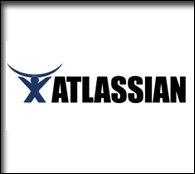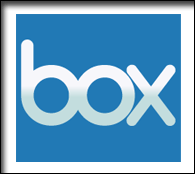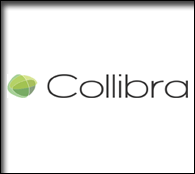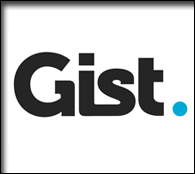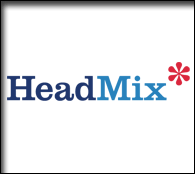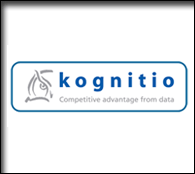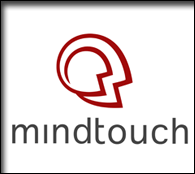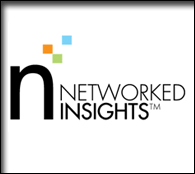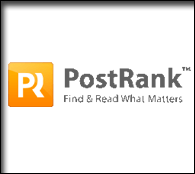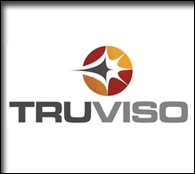Archive for January, 2008
More on XMPP and collaboration
by Eric Norlin on Jan.31, 2008, under general
My last post highlighted how the “jabber protocol” (XMPP) is beginning to creep into discussions of collaboration. In that light, this discussion of how XMPP is moving toward a “distributed twitter” gets very interesting. Definitely something to keep an eye on…
The SharePoint and collaboration driver
by Eric Norlin on Jan.25, 2008, under general, industry stuff
Microsoft’s earnings announcement has me thinking about SharePoint this morning. I still think that the *huge* success of SharePoint in 2007 is the great unwritten story. I’ve heard folks like Brad Feld and Jeff Nolan mention it, and I know that Microsoft partner companies in the trenches are well aware of it, but I have yet to see the “press” pick the story up (maybe I just missed it). I also have yet to see anyone breaking out what kind of effect that success had on the “MBD” (office and sharepoint) division at Microsoft. If anyone has that info, I’d love to see it.
At a higher level, the success of SharePoint speaks volumes about what’s happening in one of the intersections that Defrag occupies (collaboration and information overload). And it gets even “interesting-er” as you mix in posts like this one from Matt Tucker over at Jive Software (Jive’s own Dawn Foster was at the last Defrag).
I see two big trends emerging:
1. “Collaboration” is not a “nice to have” IT purchase: C-level types tend to see IT spending in 2 camps — “nice to have” and “must have.” Or, more traditionally, “productivity enhancing” and “cost reduction.” No matter how you slice that pie, most people would think of “collaboration tools” as “nice to have” purchases. Except for one small problem: People who are not “IT purchasers” can easily set up collaboration tools for themselves. The result is a collaboration environment run wild — as employees set up blogs, wikis, rss feeds, gmail accounts (and who knows what else) that are A) not under the “control” of IT and B) may not even live inside of the corporate firewall. As such, IT seems to be waking up to the fact that they *must* get their hands around what’s happening in terms of collaboration, or risk running into data protection and compliance issues that are a pure nightmare waiting to happen. Throw in the business intelligence and productivity benefits, and you suddenly find collaboration to be a “must have” purchase.
2. IT architecture is increasingly cloud-based: To limit collaboration strictly to “on-premise” software that lives strictly within the firewall takes away at least 50% of the benefit. As such, companies like Jive (and Microsoft) are pushing on how to stretch the architecture of their products to more closely reflect the “cloud reality” that most *users* take for granted. This trend makes things like RSS and XMPP (call them “cloud protocols” for lack of a better term) extremely interesting.
All of that may seem a little “in the trenches”, but the result is a mix of rss, twitters, blogs, wikis, shared documents, distributed widgets and business intelligence that can significantly increase the rate at which individuals and organizations can turn raw *data* into actual insight…ie, the very thing that we think Defrag is about (that process). It also opens the door for a whole bunch of other “stuff” around ambient tools (me.dium) and semantic tools (AdaptiveBlue) that we have yet to really think through.
Will 2008 be the year that collaboration success turns into collaboration disillusionment? I don’t think so. Granted, there are some serious problems around authorization and authentication (see Cisco’s collaboration-related acquisition of Securent for an interesting thread on this), but I don’t think that slows this train down.
The “problem” of re-arranging how we deal with data, so that the organization, discovery, usefulness and intelligence of it becomes an *implicit* act is one of the truly great problems facing technologists (in both an enterprise and user-facing sense). And its the sheer scope (both technologically and organizationally) of the problem that keeps me knowing that we have some seriously fertile ground to till at Defrag.
And for my fellow “macro” folks: Will Microsoft’s earnings renew faith in the tech sector’s “immunity” from the current slowdown? This morning’s futures look good (to be sure), though I’d tend to think we have to “test the bottom” one more time. That said, I think John Chambers will prove to be prophetic in his 2007 talks about how what’s happening around collaboration in the enterprise will be the next great driver in technology.
[Later: Pete blogs about The Silent Rise of SharePoint and points to a report that details SharePoint's growing dominance (50% of Exchange deployments use SharePoint; number of SharePoint apps expected to *quadruple* this year). Wow.]
Macro, Micro - does it even matter?
by Eric Norlin on Jan.23, 2008, under general
I opened my feed reader this morning to find an interesting post from Brad about how he doesn’t pay attention to the “macro” side of economics (ie, the whole wall street, stock market, machine). Brad says that he’s never been a “macro” guy, and never will be.
On the other side of the fence, I *am* a “macro” guy. CNBC is on right now. Its a “habit” (addiction?) that I established back in the late 90s, and one that I continue to this day. I used to work in financial services (as a stock broker), and that probably plays into it, but even more so, I’m simply fascinated by “marketplaces” — and the sheer complexity of our current public markets is something that I love. When I was working the mid-shift for a certain government agency in the mid to late 90s, my obsession began, and I fed it by going to a pretty small public library and proceeding to read *every* book (literally, from A to Z) that they had in their finance section in about six months (let’s just say the midnight shift was usually slow).
I worked in that industry until about a year-ish prior to the dot-com crash, and actually had the good fortune (luck) of advising all of my clients to go to bonds or money markets (or out of stocks) before the market crashed. Barely anyone listened (the three that did - yes three - all contacted me a year later to thank me).
In any case, my single biggest takeaway from that whole experience was that the macro swings happen. That sounds stupid, but the natural human tendency is to believe that when the “market” is up (and everyone’s making money — whether in the silicon valley or the real estate market) that things will *always* be that way. Hence, the “pain” of a down market.
Knowing that you can’t avoid the swings only means that on both a personal and professional level you must be prepared for them. That’s it. Its really just that simple.
So, what does all of that mean for tech companies in our current environment? Not much. Sure, some aspects of doing business will be tougher. But, hey, did anyone really get into the “tech game” because they wanted a risk-free existence? Of course not.
The problems that we’re trying to solve with technology remain. Defrag’s problem-set (addressing information overload) remains. And, despite the drop in people’s portfolios, or a crunch in the credit markets, it is still up to all of us to solve them.
I’m not trying to minimize the pain that individuals feel through all of this - not at all. All I’m saying is that even a “macro” guy like me agrees with Brad when he says the “day to day” stuff in the markets is just “noise.” Put that aside, focus on doing good business, and trust that markets (over time) always cycle. In fact, the “cycle” is the only thing you can count on.
One side-note to this: As I wrote, I realized that Brad and I have actually never had a conversation that lasted more than 45 minutes — about anything. In fact, my main point of interaction with Brad is via email and his blog. Ya gotta love this “internet machine” that we’ve all created. ![]()
I knew it was coming - tag, I’m it.
by Eric Norlin on Jan.11, 2008, under Uncategorized, general
Jeff Nolan tagged me. The game is to tell 8 things about myself and then tag some other bloggers that haven’t been tagged:
1. My father was a minister that “found religion and took up computer programming.” (His quote, not mine.)
2. My wife and I have a doberman named, “Maddie.”
3. I, too, love walking my dog in the morning - -listening to the ocean waves and watching the sun rise reminds of everything I have to be thankful for, daily.
4. The one activity that I wish I did more of is fly-fishing on the Brule River in Northern Wisconsin.
5. I’m a level 33 (and rising) Warlock (Kalevra’s my name; warlocking’s my game).
6. I am a walking stereotype: I live in south florida and *love* jimmy buffet.
7. My first computer was a Commodore 64. My *best* computer was one that I can’t talk about.
8. I’ve learned that I don’t need or want the “homerun, I’m a billionaire, VC-funded, big buyout” event. I love what I do; can’t imagine *not* helping new communities form around great technologies; and wouldn’t trade my lifestyle for a hefty percentage of Facebook or Google.
I’m tagging Andre Durand, Patrick Harding, Dick Hardt, Lou Paglia, David Duey, and Todd Inskeep (todd - where’s that blog?).
“That is not possible” - oh really?
by Eric Norlin on Jan.11, 2008, under general, industry stuff
One of the things that was top of my mind when Brad and I first spoke about launching Defrag was to get tech folks out of California; to highlight the fact that innovation occurs all over the place, while giving our California friends a chance to step out of the echo-chamber that is so often existing in the Bay Area and the Valley.
By all accounts, it worked and folks just “felt” differently when they were at Defrag.
This morning I awake to a NYT’s piece about how California is going to take control of people’s thermostats (in times of crisis). The piece actually kind of strikes me as something I expect to hear coming out of California, until I read this last little bit (quoting):
“Mr. Somsel, in an interview Thursday, said he had done further research and was concerned that the radio signal — or the Internet instructions that would be sent, in an emergency, from utilities’ central control stations to the broadcasters sending the FM signal — could be hacked into.
That is not possible, said Nicole Tam, a spokeswoman for P.G.& E. who works with the pilot program in Stockton. Radio pages ‘are encrypted and encoded,’ Ms. Tam said.”
“That is not possible”???!!! - I almost blew coffee through my nose when I read that. I mean, unless PG&E has surpassed certain government intelligence agencies in their encryption standards, it most certainly *is* possible. Not only that, but it presents one hell of a nice target (if you’re a bad guy), and the fact that she’s out there saying its not possible will almost inevitably be seen as a challenge by some (we all know that).
Wow.
I guess I *really* wouldn’t want to be running a California-based data center if this all comes to pass…
Recession-light?
by Eric Norlin on Jan.10, 2008, under Uncategorized, general
Alright, I admit it — last year, I went out on a limb and said there would be no recession in 2008. Okay, maybe it was more like i chained myself to the tree and hung neon signs saying there would be no recession. Either way, I’m big boy and I can admit when I’m wrong - kinda.
Goldman Sachs came out yesterday and said they expect the US economy to be in a “recession” (kinda) in Q2 and Q3 of 2008. Now, they *don’t* mean negative growth (call me silly, I thought that the classical definition of a recession still held). They do mean an economy only growing at around 1% for 2 consecutive quarters.
How does this affect technology? Well, clearly enterprise software spending will slow (though as Defrag’s own Paul Kedrosky points out, online ad spending probably won’t). Goldman notes that the six months leading up to a recession and the first phase of it are the worst for technology — so expect us to be out of the woods by Q3.
Will this “burst the bubble?” I don’t think so. I think it will certainly shake out some weaker players — but Defrag won’t be one of em! ![]()
Bottom-line: at the end of the day, this kind of cyclical move is a good cleansing process.
One last note: I was going to wait and announce this all at once — but under the “release early and often” mantra — allow me to name our first three advisory board members for 2008……(drum roll, please)
Esther Dyson (of PC Forum fame)
Chris Shipley (of DEMO fame)
Paul Kedrosky ( of internationally-known business television personality fame)
That’s not the end, it is most certainly just the beginning. Hold on tight, 2008 is gonna rock!
A note on Defrag 2007
by Eric Norlin on Jan.02, 2008, under Uncategorized, general
I received a very nice note from Marie over at Qualcomm on her experience at Defrag 2007. Rather than trying to recount, I thought I’d quote large parts of it:
“I was struck by the commitment to asking new questions. Or maybe old questions within a new framework. To get above the fray of VC hype and start-up ebullience (not that those aren’t important, too) to step back and think about “meaning”. As a lay practitioner of applied epistemology (no, really!), I am fascinated by what the new metaphors will be for interacting with overwhelming amounts of available data, information, insight and meaning. How do you cross-pollinate for truly fertile innovation when you have to be an expert in a given field before you can appreciate how its insights apply to your primary field? How do I find the new research that can radically change my thinking among the scads of useless derivative drivel that uses all the same words? Hell, how do I find just the right bench for my garden when Google doing its level best to help me but succeeds only in giving me 100’s of links to the same old lame stuff?
I loved the mix of academic thought with industry experience. If we are searching for new models to describe our relationship to information we
need both theory and practicum to inform our thinking. Defrag provided a nice melting pot of perspectives that definitely moved my thinking on
the topic forward.
And of course, though I can’t discuss it, I gained inestimable value from Closed Private…
…Warm Regards and thanks for an Outstanding event!!”
Thanks, Marie. We look forward to doing an even better job in 2008!
